
Wait, weren’t we just complaining about the heat? Instantly, with the start of September, Chicago cooled, and we are enjoying temps in the 60s and 70s. Just as we have no spring here, fall is the same. One week it’s hot, the next it’s freezing. I never envy our high-rise engineer who must decree when the heat is turned on building-wise. It’s impossible to please all the residents.
So many good books passed through my hands in the last month. Of all, Viktor Frankl’s focus on finding the meaning in your life still resonates. As a result, I was discussing with a friend the meaning of corporal works of mercy (Catholic) and mitzvahs (Jewish) in our lives. These small acts can be an offer of chicken soup when we have Covid or the flu, help with our baggage at the airport, a ride when we would normally take the bus.
Please, ladies, always be accepting and grateful to those who offer help. Stop saying, “Oh, I can do it myself, don’t bother.” Whether you can or can’t is not the point. Our acceptance can give meaning to the lives of others. It’s such an easy gift to give.
The Imposters by Tom Rachman (Little Brown and Company, 2023)
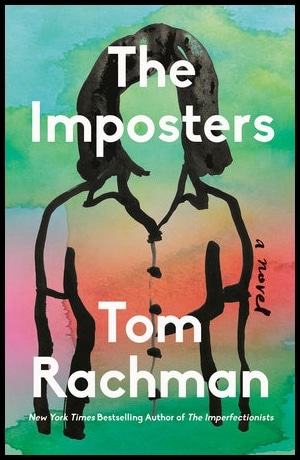
The Imposters features one of my favorite book construction styles: short stories gathered around a theme. Rachman indulges his love for character development as each chapter centers on people who do not seem part of a unifying thread – until they are.
This is not an upbeat book, and some will consider the ending grim, but I could not put it down. The writing is superb. The second chapter is perhaps the best short story I’ve read in years.
Dive in!
Mosquito Empire: Ecology and War in the Greater Caribbean, 1620 – 1914 by J.R. McNeill (Cambridge University Press, 2010)
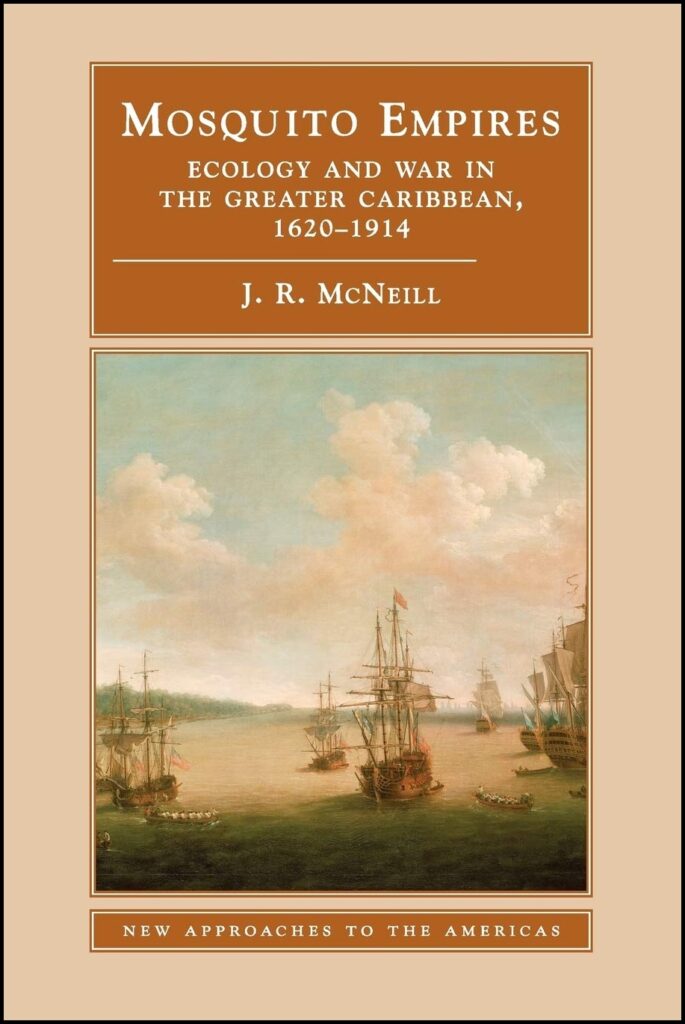
Yes, it’s a university textbook, but I enjoyed this contrarian view of the West Indies. Most history, always told from the point of view of the victors, recounts the enslavement of the Amerindians to produce food and fuel for the Spanish.
When the Amerindians were wiped out by European diseases and slave labor, and other nations conquered or claimed Caribbean and South American territories, these conquerors brought in slaves from West Africa to provide food, fuel, and labor in the newly discovered gold and silver mines. And with the Africans came the germs that cause malaria and yellow fever.
Most Africans were immunized by mild cases in early childhood, not so the Europeans. They died, thousands upon thousands. The European residents of the Caribbean who survived acquired immunity.
When war in Europe caused war in the Caribbean, kings sent thousands of troops. If they arrived at the beginning of the rainy season, most died within a month. If they arrived in the drier season, they stood a chance of a fair fight against the defenders. But if the defenders could hold out six months, all was lost for the attackers and mosquitos reigned supreme. Only the unremitting poverty and starvation in Europe enabled the military to continue to enlist soldiers and send them to an almost certain death.
It was the building of the Panama Canal and the discovery that controlling stagnant water decreased breeding by the mosquitos that brought an end to the Mosquito Empire.
The Century Cycle by August Wilson
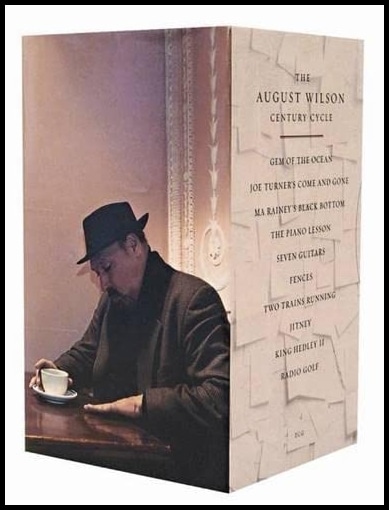
It’s not likely that I will see all 10 plays in August Wilson’s Century Cycle. So, I read the ones that I missed. Most libraries have the complete series scripts in book form. I wish that a theater company would produce all 10 plays at a festival with a repertory cast. Count me in.
Reading plays produces a different effect than seeing them staged. For one, the rising action and the climax come more quickly in a book. You lack the nuance that actors and directors bring. It’s just the playwriter’s words tumbling into your mind.
The benefit is you see the brilliance of the writing. The drawback is you lose the tension of the gradual build on the stage. If you are unable to attend Wilson’s plays, I highly recommend reading them. You will find interviews with Wilson and excerpts from the plays on YouTube.
Salvage This World by Michael Farris Smith (Little Brown and Company 2023)
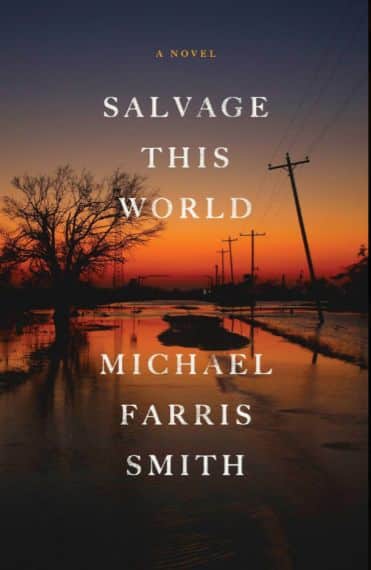
I picked this from the “New Fiction” section at the library, trying to fill a momentary gap in the usual flood of my library books. While The New York Times gave Salvage This World a more than passing review, I didn’t find this dip into the future dystopia of the U.S. southern coast appealing. Too many common tropes of unidentified keys, hysterical preachers, and dark caves.
Evil Things by Katja Ivar (Bitter Lemon Press, 2019)
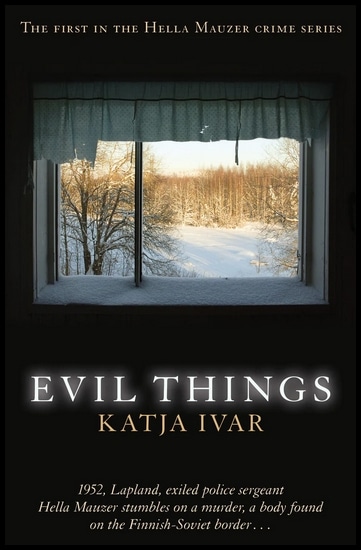
I picked this because Ivar released a new book, Trouble, in August, the third in the Hella Mauzer series. “Ah hah, here’s a mystery series I can tackle from the beginning,” said I. Also, since readingRetracing the Iron Curtain by Timothy Phillips, the fluid border between Russia and Finland interests me. And that is precisely whereEvil Things is set, Lapland, just a few miles from the border in 1955.
I did enjoy the book. The denouement of the mystery is interesting. But I hope Hella develops into a more complex character in the next books. She’s too much the unidimensional wronged woman, the uptight detective. But this is 1955 and she is pioneering female cop.
Fingers crossed.
Man’s Search for Meaning by Viktor E. Frankl (Beacon Press, 1959)
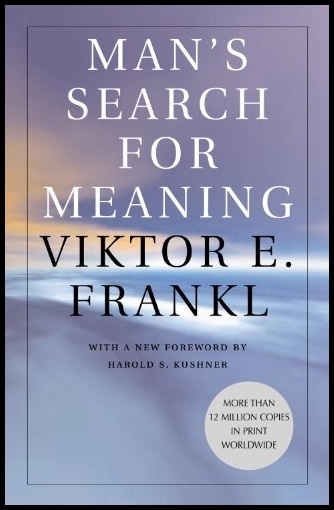
Yet another of the “most influential books in the world” that I had not read. Now I have and am better for it. Here’s the short synopsis from Wikipedia:
Man’s Search for Meaning is a 1946 book by Viktor Frankl chronicling his experiences as a prisoner in Nazi concentration camps during World War II, and describing his psychotherapeutic method, which involved identifying a purpose to each person’s life through one of three ways: the completion of tasks, caring for another person, or finding meaning by facing suffering with dignity.
Frankl observed that among the fellow inmates in the concentration camp, those who survived were able to connect with a purpose in life to feel positive about, and then immersed themselves in imagining that purpose such as conversing with an (imagined) loved one. According to Frankl, the way a prisoner imagined the future affected his longevity.
The book intends to answer the question, “How was everyday life in a concentration camp reflected in the mind of the average prisoner?” Part One constitutes Frankl’s analysis of his experiences in the concentration camps, while Part Two introduces his ideas of meaning and his theory called logotherapy.
Thankfully, this is a short, well written book. When I found myself drifting in the second part about his psychotherapy, I forced myself to slow down and read with greater concentration. There is a reward because I was soon evaluating my actions, my work, my life in terms of meaning. Not many books have that effect.
Highly recommended if you want to be inspired to think.
The Letter Killers Club by Sigizmund Krzhizhanovsky New York Review Books, 2011
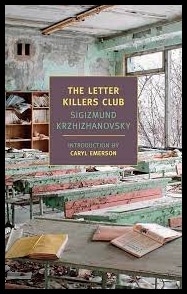
This is my second book by Krzhizhanovsky, a Russian writer during the time of Stalin, but unpublished until after Stalin’s and Krzhizhanovsky’s deaths. This novella tells of Russian writers who are committed to storytelling, but not writing a single word because that “kills” the purity of the idea.
The club meets weekly. The stories result in Chaucerian vignettes that sparkle with originality, wit, and undoubtedly hold hidden meanings arising from the suppression of intellectual life in Russia during the 1920s.
Without knowing a word of Russian, I know the translation by Joanne Turnbull is brilliant. The feelings of loneliness, gauntness, distrust, and creativity flow off the page, just as they must in the original language.
Read this if you want a short dip into an intensely creative Russian mind.
Western Alliances by Wilton Barnhardt (St. Martin’s Press, 2023)
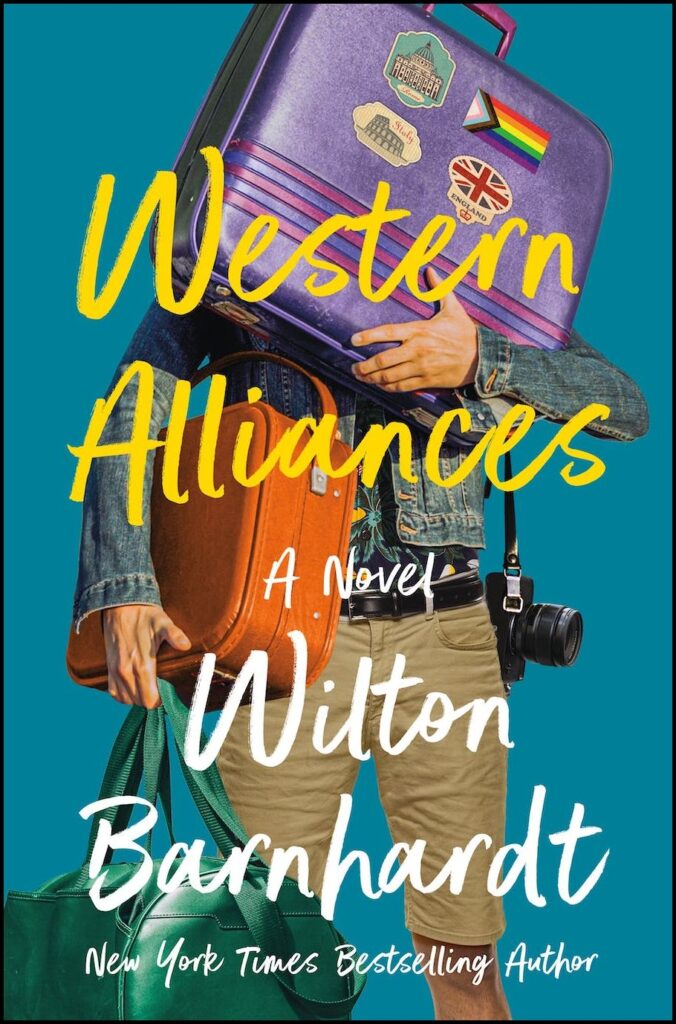
What a strange book! It’s about competitive adult siblings who squander their lives and their fortunes trying to best each other with their esoteric academic accomplishments, all European based. Daddy is an everyday bond trader in Providence RI, who morphs into a Wall Street oligarch as the financial collapse of 2008 sweeps away the children’s comfortable world. Best character is Mother Dearest, who divorced humble Dad for glamour and “real” money.
Kirkus labeled this book “aim-resistant,” not aimless. Good terminology. That’s how I found the writing. I loved the use of causal photography that illustrated some of the obscure observations.
Enjoy this book for what it is – strangely compelling.
Born Standing Up by Steve Martin (Scribner, 2007)
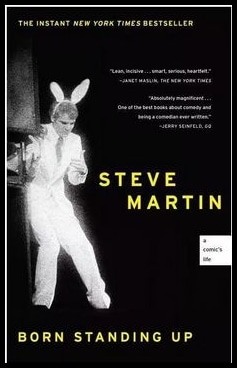
Another Laundry Room book – and a good one. I love Steve Martin. And if you have not watched the Netflix special of Steve Martin and Martin Short doing stand-up, don’t miss it. The book is direct and unapologetic. Steve Martin comes from a tough family and is a self-made man/comic.
For those of us who remember the “Wild and Crazy Guys” on SNL, Born Standing Up is a delicious romp through our TV comedy history. It’s a quick, fun read.
The Wise Ass by Tom McCaffrey (Black Rose Writing, 2021)
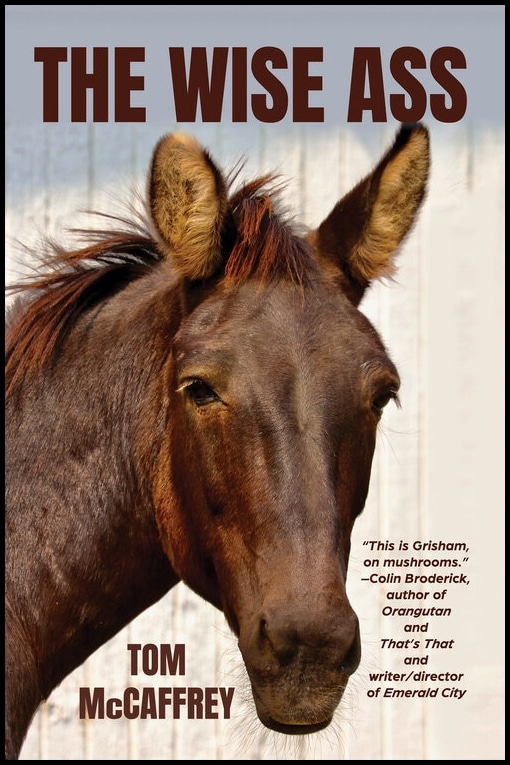
I purchased this book wanting a fun read about an attorney in the witness protection program. I overlooked the blurb that mentioned the word “paranormal” – talking animals, extraterrestrial neighbors, psychics – the rush never stops when the book gears up. It’s a fun little book, but I’d like to see McCaffrey try his hand at a serious novel. If you are a fan of fun paranormal, I recommend this book, and there are three more in the series.
Let’s Have a Conversation:
How many books did you read in the last month? How about during the summer? What sorts of books were they? What have you a taste for as fall settles in?





